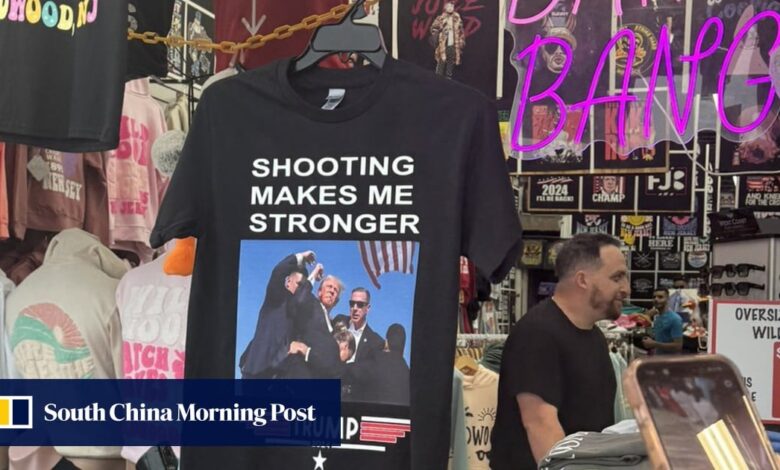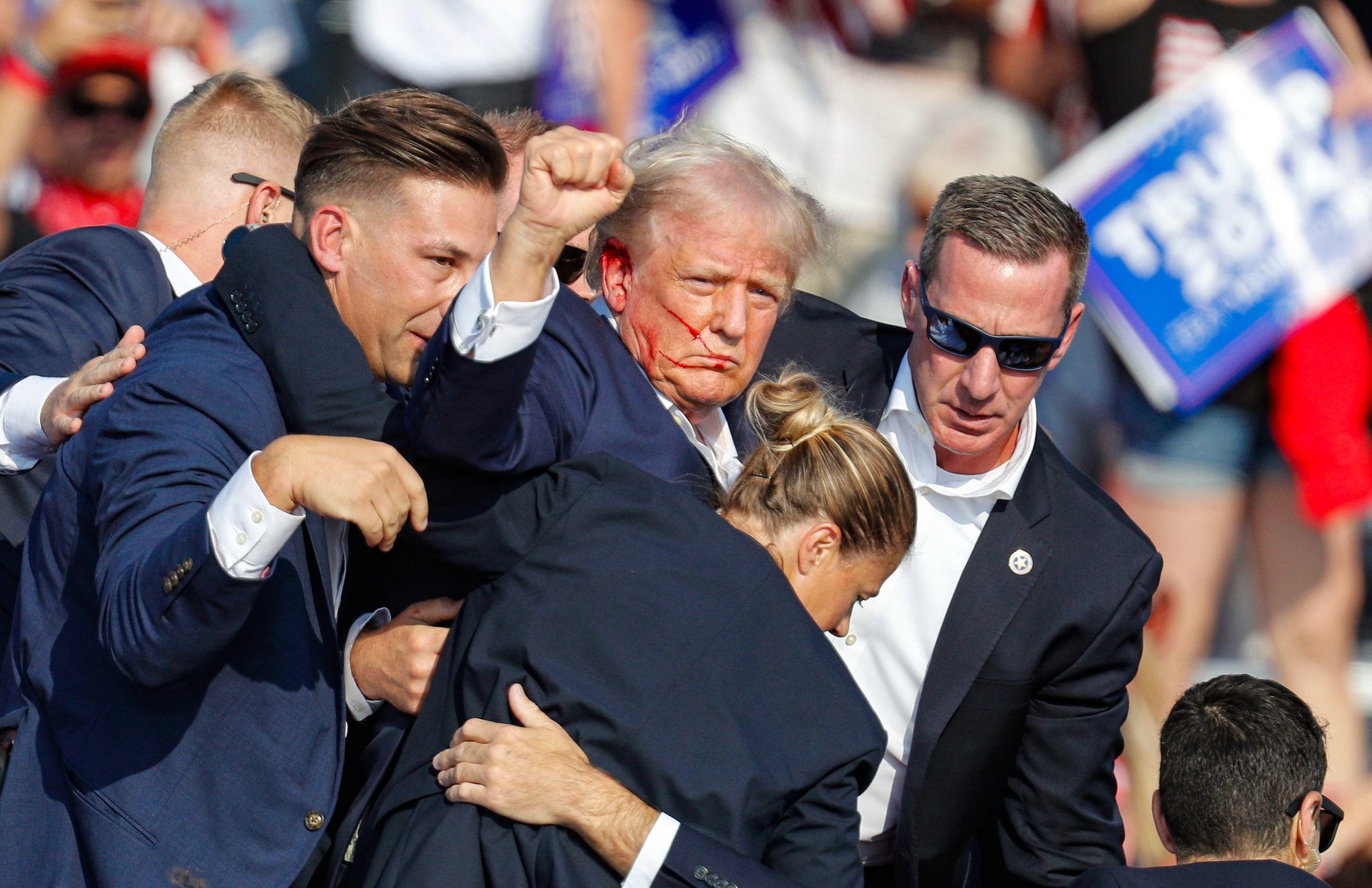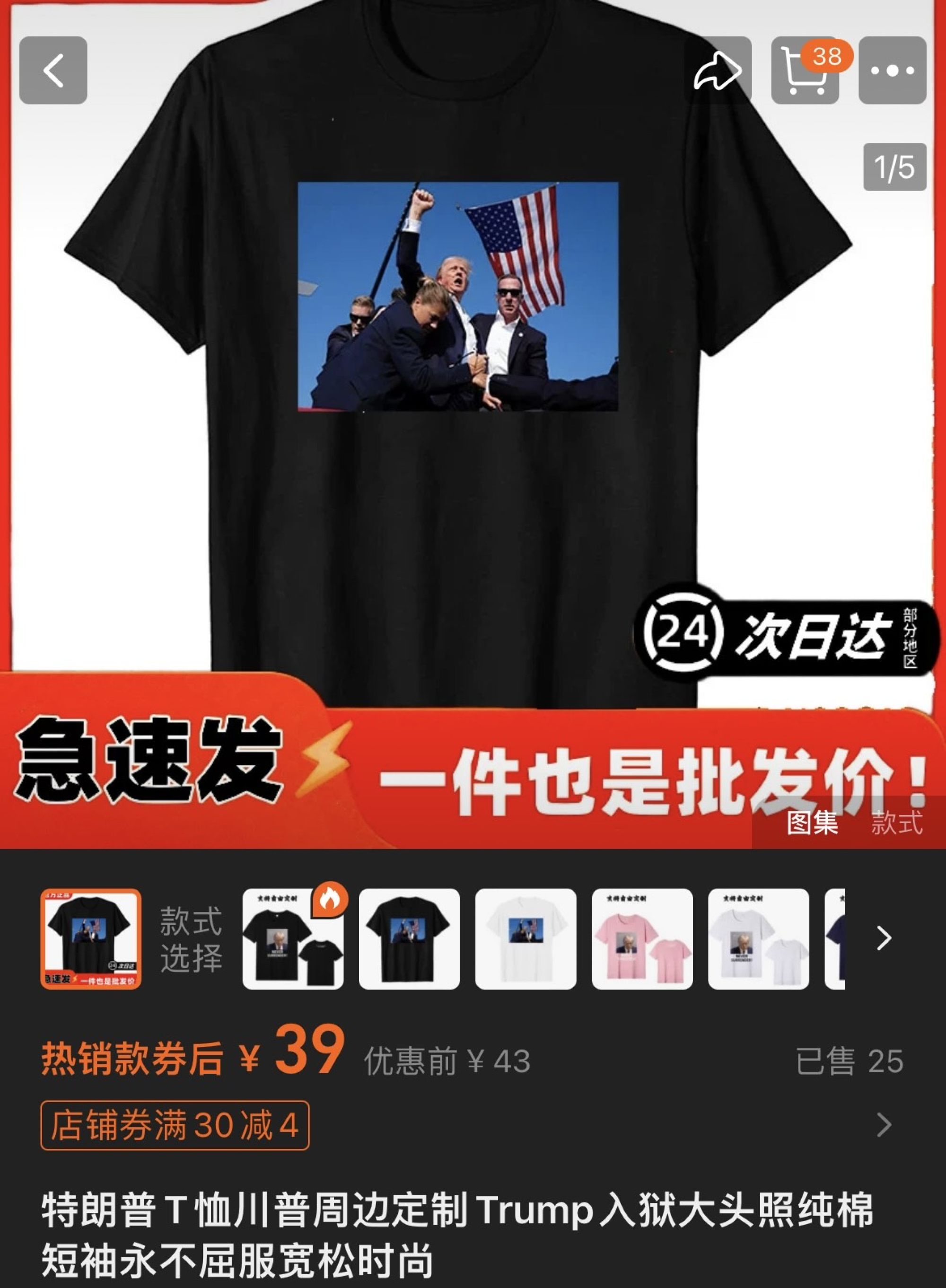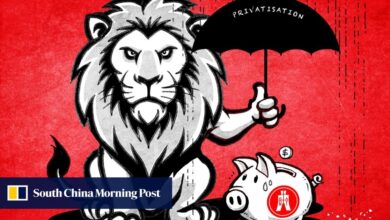Trump rally shooting: Chinese online retailers quick off the mark with souvenir T-shirts

The first batch went on sale on Taobao, a popular Chinese e-commerce platform, at 8.40pm – before most governments around the world had scrambled together a response.
That is China’s speed.
Li Jinwei, a 25-year-old Taobao seller, had her T-shirts on her online shelves by breakfast time in China.
“We put the T-shirts on Taobao as soon as we saw the news about the shooting, though we hadn’t even printed them, and within three hours we saw more than 2,000 orders from both China and the US,” she said.
Taobao is owned by Alibaba, which also owns the South China Morning Post.

Li’s factory is based in the northern province of Hebei, and to create new products, she simply downloads an image and presses print, with the factory taking an average of one minute to finish a T-shirt.
“For this year’s US presidential election, we only made souvenirs of Trump, as he has a higher chance of winning the election, and he is popular among Chinese netizens,” Li said.
Demand for “election- and rally-themed” custom T-shirts is quite strong in the US market, according to Guangdong–based Allen Yao, co-founder of Xinflying Digital Printing Production.
Earlier this year, Yao opened a fully automated factory in California, with a daily production capacity of around 3,000 T-shirts, a total that is expected to increase to 8,000 by next month.
“The T-shirts are imported from Vietnam and stored in US warehouses, and the production speed is very fast,” Yao said.
A digital printing machine could print 27 square metres (290 sq ft), or about eight election-related T-shirts, in an hour and these could be immediately put on the shelves for sale in California, he added.
“Demand is so strong, and we just can’t produce enough.”
The company plans to open a new factory on the US east coast next year, increasing daily production capacity to 30,000 items.

Data from DHgate, a Chinese cross-border e-commerce platform focusing on the US market, shows that since January, the transaction volume of election-related souvenirs had grown by more than 40 per cent every month, with month-on-month growth rate in March exceeding 110 per cent.
The total transaction value of US election souvenirs in the first quarter was up more than 90 per cent in the same period last year, Shanghai-based media outlet Yicai reported in May, citing data from DHgate.
For other manufacturers, the prospect of a Trump win goes beyond T-shirts and souvenirs – Chinese exporters are starting to front-load shipments for fear of further tariff increases.
This was partly reflected in data for June exports, which rose 8.6 per cent year on year in US dollar terms, while producer price index and new export orders slumped during the same period.
Chinese home goods exporter Sam Xiao said his company in Texas had asked its China headquarters to immediately order and ship products to fill their warehouses before the end of the year.
“Many exporters are discussing the need to ship goods before the election to cope with potential cascading changes ahead, like possible tariff hikes and skyrocketing shipping costs,” he said.
Gao Zhendong, a Beijing-based supply chain specialist helping Chinese firms to invest globally, said the increase in exports would not be great because the Chinese supply chain had already made adjustments over the past six to seven years, and the Biden administration had largely continued the tariff policies of the Trump years.
But a Trump win would affect supply chains.
“Most exporters feel that this unexpected event has significantly increased Trump’s chances of winning,” Gao said.
“If Trump wins, tariffs on the ‘new three’ products [photovoltaics, lithium-ion batteries and new energy vehicles], iron and aluminium products will be significantly raised.
“Furthermore, it also implies that related supply chains in Vietnam and Mexico could be negatively impacted, as Trump has consistently criticised Vietnam and Mexico as ‘re-export havens’ for Chinese production.”
Chinese imports, however, were unlikely to drop further, Gao added.
“The volume of trade between China and the United States has significantly decreased in recent years and has stabilised. There is limited room to reduce Chinese imports further because any attempt by the US government to decrease Chinese imports further will be constrained by US inflationary pressures.”
Source link



